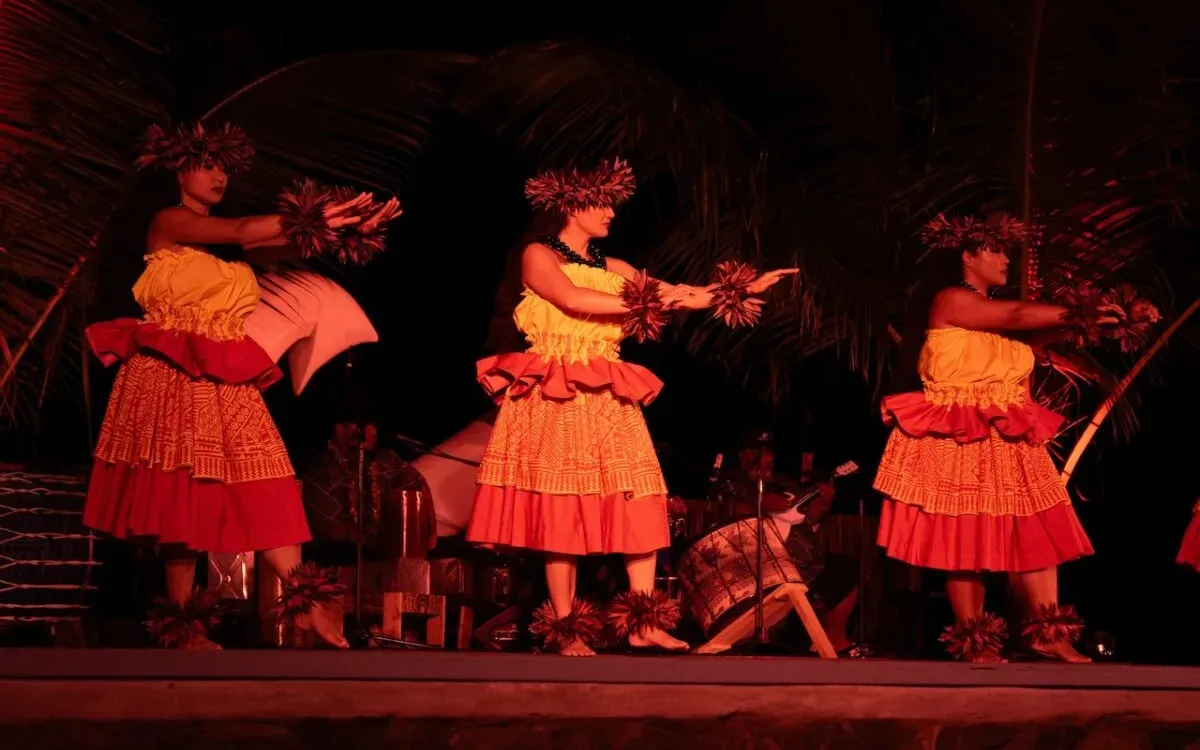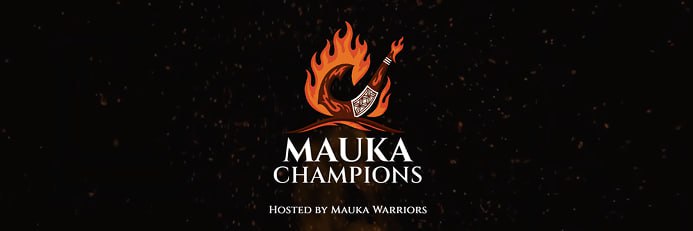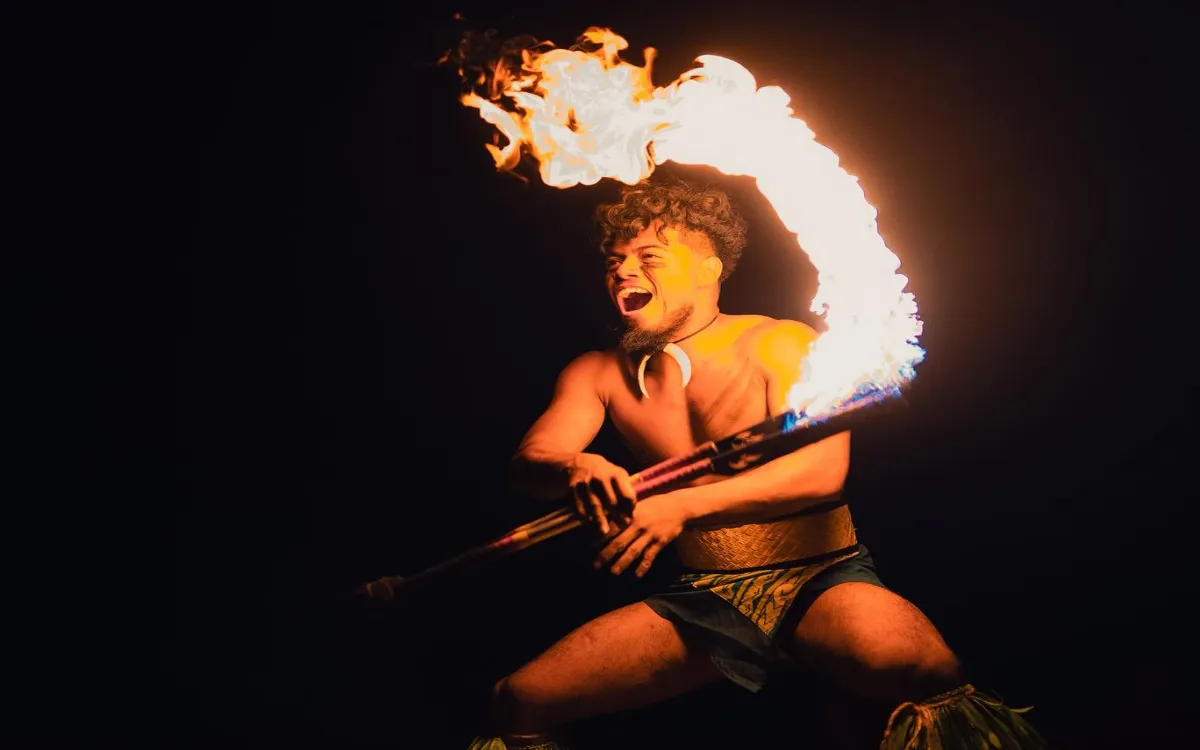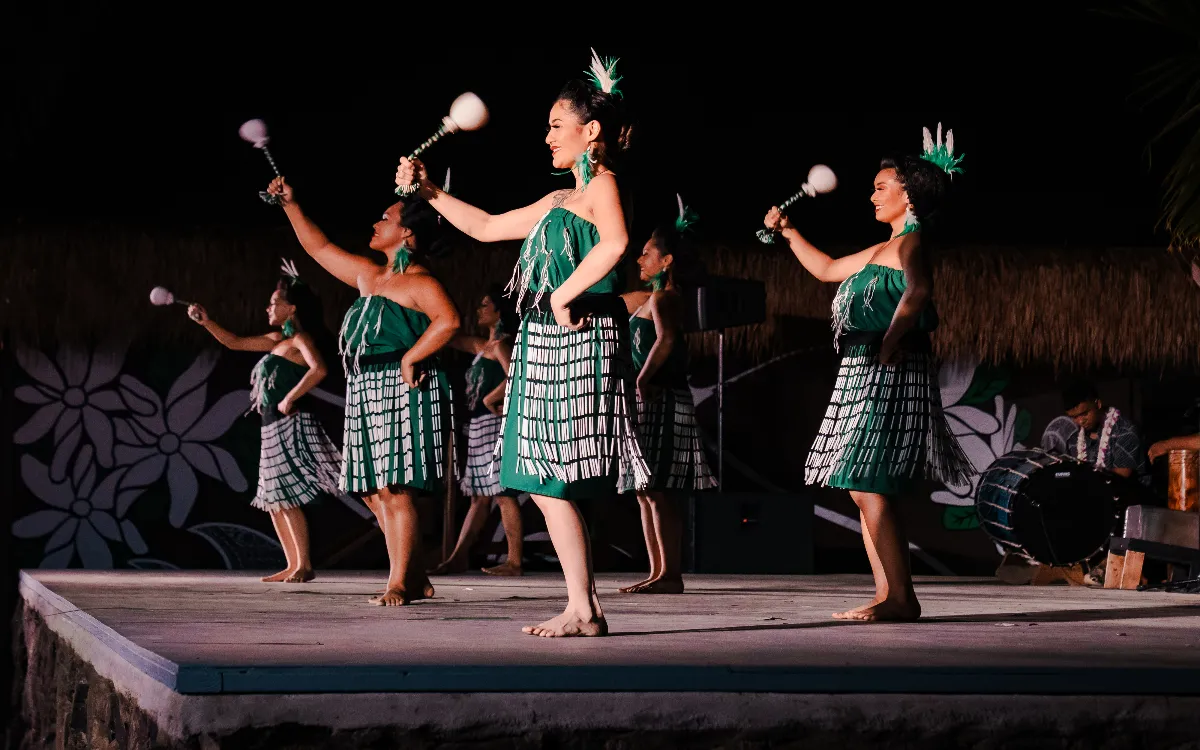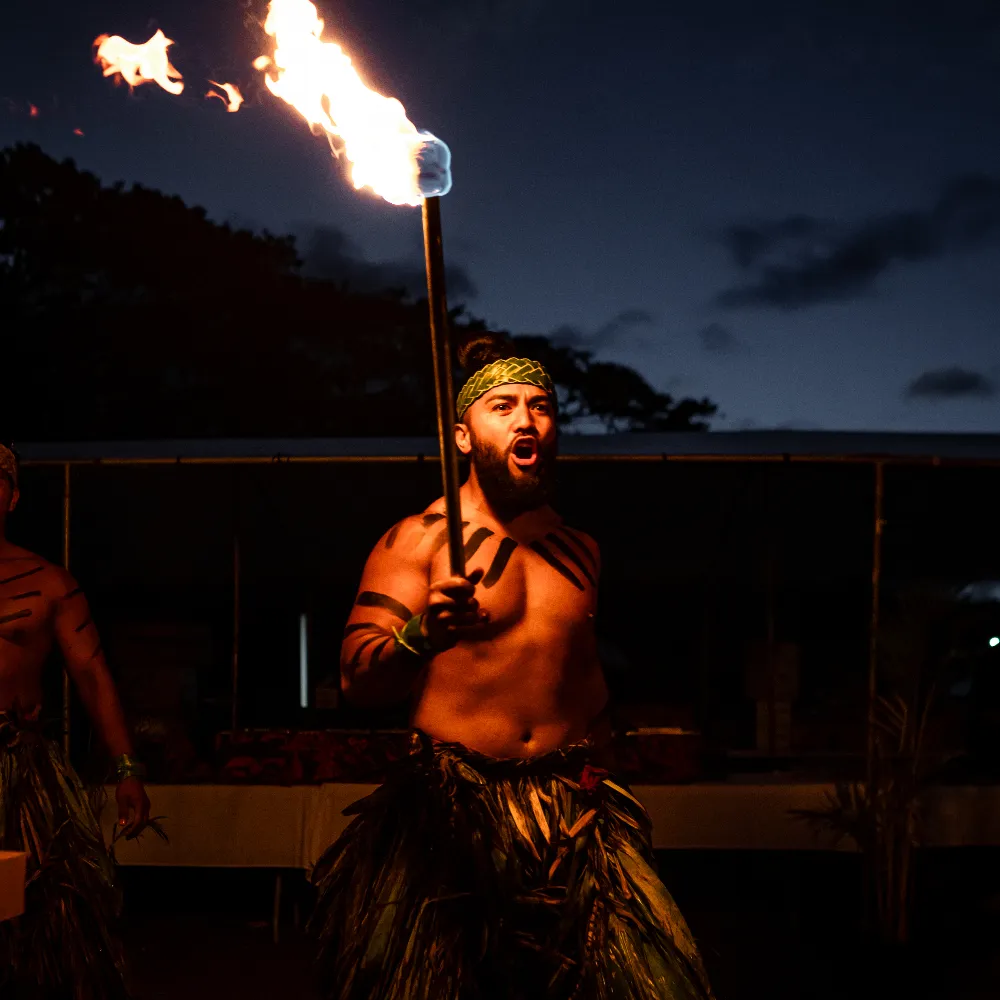Mauka Warriors Luau in Kapolei brings Polynesian warrior spirit to life, featuring a thrilling Fire-Knife Performance, music, dance, and a taste of Hawaiian pride.
Many people know Hawaii through its dances. Hula, fire dancing, and warrior dances are eye-catching performances that draw attention. But behind them are untold stories of how the Polynesians passed down their knowledge for thousands of years before writing ever existed. Today, Mauka Warriors Luau lifts the veil on those ancient secrets.
Hula – From a Misunderstood Dance to the Soul of Hawaiian Culture
Many still mistakenly believe that Hula is simply a hip-shaking dance created for tourists. The truth is, Hula has long been misjudged and burdened with prejudice. When Western missionaries arrived in Hawaii in the 19th century, they considered Hula to be “superstitious,” “improper,” and even banned its performance for being at odds with the moral standards they brought with them.
But for native Hawaiians, Hula was how their ancestors preserved memory. Before writing, their forebears used their bodies to tell stories of the land, the sea, the gods, the people, and historical events.
Hands represent waves, birds, or the names of gods.
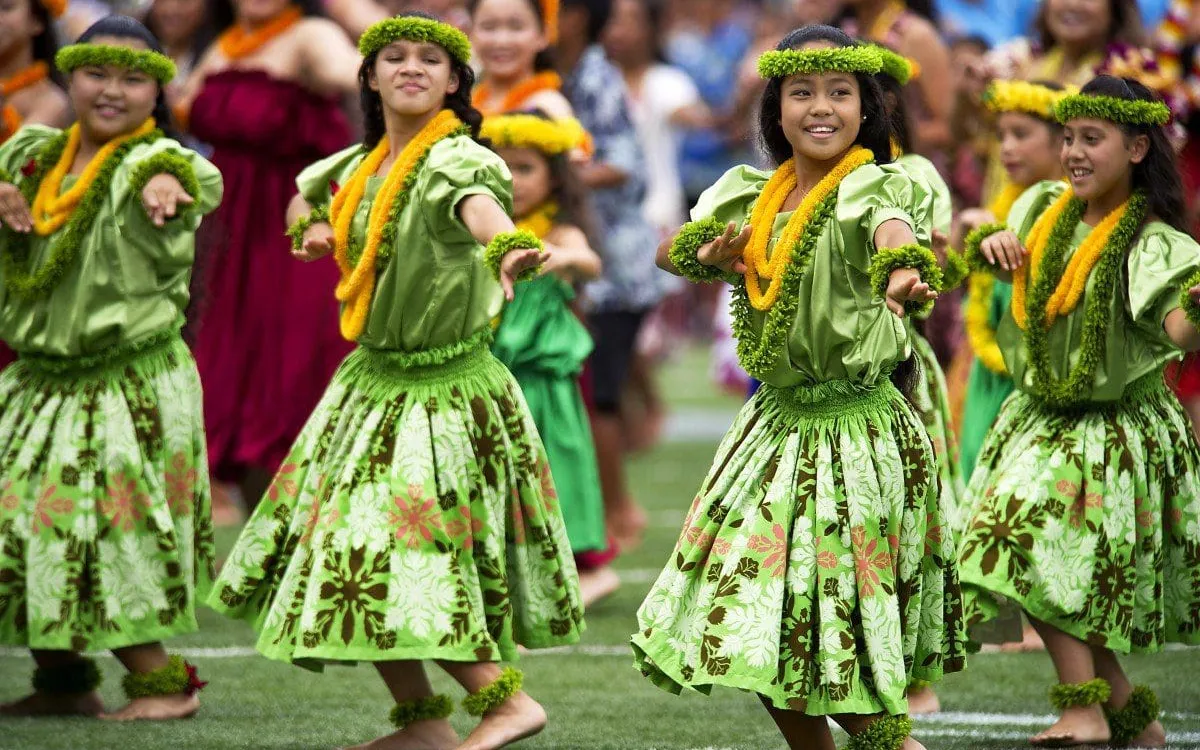
Hula dancing is a greeting from the land of Hawaii
Eyes express gratitude, loyalty, or sorrow. Body movements and breath move in rhythm with the drums and chants like a prayer sent to the heavens.
At Mauka Warriors Luau, you'll witness both main styles of Hula:
- Hula Kahiko – the ancient style, with no modern instruments, only pahu drums and chants. It is solemn, powerful, and ceremonial.
- Hula ʻAuana – a more modern style with instruments like the ukulele, soft melodies, and stories of love, nature, and daily life.
As one performer at Mauka once said:
“Ancient Hawaiians had no books. Hula was how they wrote their lives with their bodies. Every dance is a page of memory.”
And that remains true today. When guests stand under the firelight, hear the beat of the drum, and watch a dancer close their eyes and move with the rhythm, they can feel something raw, ancient, and sacred being preserved.
Fire Dance – A Warrior’s Rite of Passage
The Fire Knife Dance originated in Samoa. Long before it became a stage performance at modern luaus, it was a vital ritual marking a young man’s passage into adulthood. Anyone who wished to become a warrior had to pass this challenge.
Training in fire dancing required immense perseverance. In the beginning, there was no fire. Just a wooden stick or real knife spun around the body, tossed into the air and caught again. The young man had to practice until he became flawless, no dropping, no missteps, no panic. Only then would fire be added to the real test.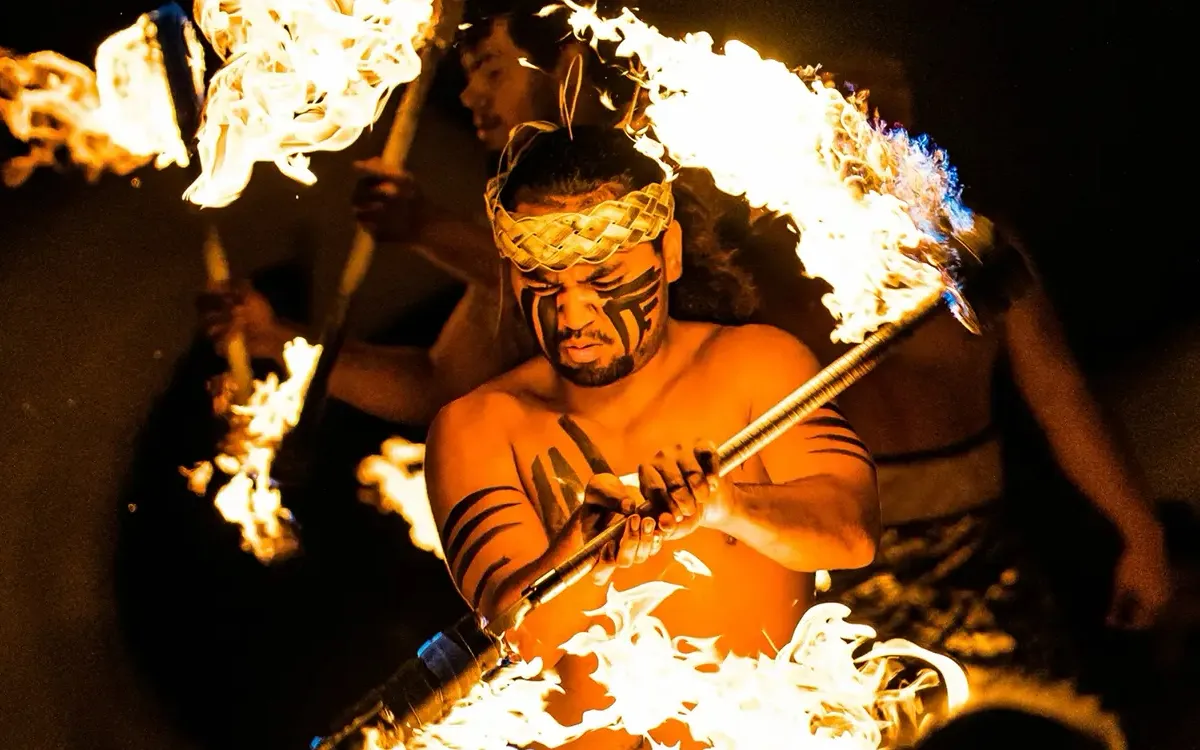
Fire knife dance
Dancing with fire knives is no easy task. One slip in focus, one missed beat, and injury could follow. The dancer must remain razor-sharp, steady in rhythm, controlled in breath, a way for ancient Hawaiian warriors to forge calmness and self-control under pressure.
Today, this dance is performed on stage as a cultural attraction in Hawaii. But not all shows preserve its original spirit like Mauka Warriors Luau does where the fire dance remains a sacred rite of youth, courage, and respect for tradition.
Haka – The Warrior Dance of New Zealand
Haka is a traditional dance of the Māori people of New Zealand. Once you've seen it, it's hard to forget: powerful shouts, piercing gazes, hands beating on chests, feet stomping in sync with drumbeats. It looks intense, but it’s full of meaning and emotion.
Haka doesn't originate from Hawaii, but the Polynesian people from Hawaii to Samoa, Tahiti to New Zealand share deep ancestral roots and cultural ties. They regard one another as distant kin, with shared beliefs, stories, and ways of using the body to tell them. That’s why Haka is still respected as part of the Polynesian cultural family.
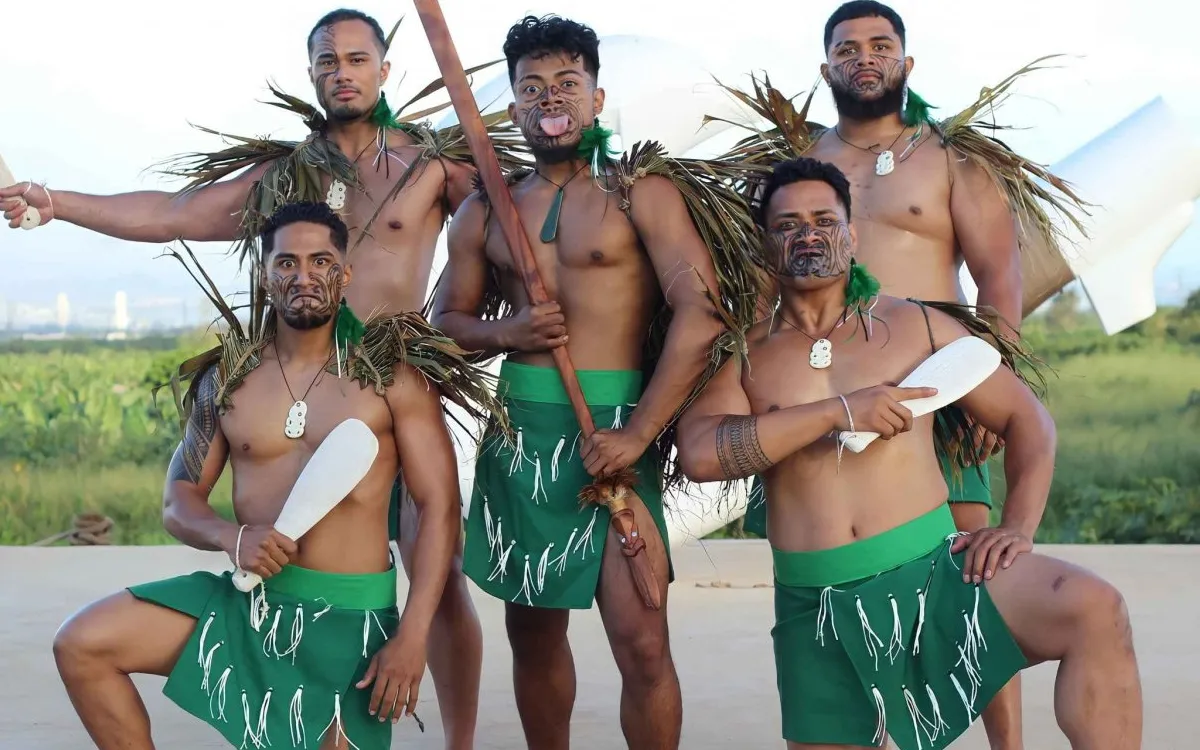
Haka dancers
Haka is used in many ways to rally warriors before battle, to honor the dead at funerals, or even as a warm welcome from hosts. Like Hula, Haka is a way to pass down history, legends, and family lineage especially during large gatherings or ancestral ceremonies. In ancient Māori society, where writing was rare, the body was a "living book" preserving collective memory.
At Mauka Warriors Luau, Haka remains one of the honored dances performed.
Why Should You Attend a Luau at Mauka Warriors Luau?
1. A Peaceful, Comfortable Setting
Mauka Warriors Luau is held outdoors on a mountainside in western Oʻahu. The venue is surrounded by trees, with an open-air stage and dining area with no large tents or flashy stages. The number of guests per night is limited to maintain a calm atmosphere and avoid overcrowding. It's ideal for those seeking a quiet, less hectic space.
2. Truly Local Food
The buffet features traditional dishes such as Kalua pork roasted in an imu (underground oven), grilled fish, poi (mashed taro), lomi salmon, boiled sweet potato, and haupia (coconut pudding). The food is prepared on-site, presented simply, focusing on preserving traditional flavors rather than adapting to global tastes. Though the selection isn’t as large as in commercial luaus, it faithfully represents the kind of meal served at traditional Hawaiian ceremonies.
3. Performances Rooted in Authentic Culture
The program includes ancient Hula (Hula Kahiko), modern Hula (ʻAuana), Fire Knife Dance, and Haka - the warrior dance from New Zealand. Before each performance, the host explains the origin and meaning of the dance in Polynesian culture, conveying its historical, spiritual, and traditional value.
4. A Relaxed, Approachable Atmosphere
Mauka Warriors Luau doesn’t require guests to participate in interactive activities. Visitors are free to enjoy their meal, stroll around the stage area, or observe the imu ceremony without being pressured to join in. The schedule is balanced, nothing drags on or feels overwhelming. This makes it perfect for guests who want to observe native culture in a gentle, respectful way.
5. Ideal for Those Seeking Cultural Insight
Overall, Mauka Warriors Luau limits the commercialization often seen in mass-market luaus. Instead, it aims to preserve traditional organization, serious content, and cultural authenticity. It's an excellent choice for travelers interested in exploring the deeper cultural roots of Polynesia and Hawaii rather than just looking for a festive, entertainment-style night out.
Mauka Warriors Luau is a thoughtful and meaningful option for visitors who want to understand Hawaii through its true cultural lens.
